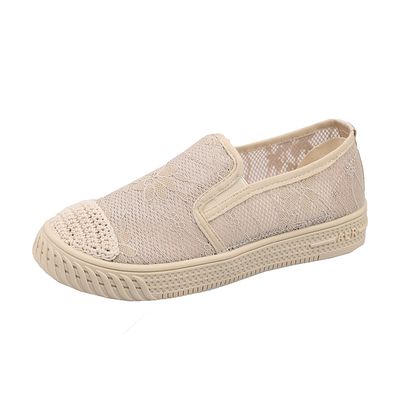The global demand for versatile, sustainable footwear is soaring, and Jinjiang’s manufacturers are answering the call with groundbreaking modular designs. As the “World Shoe Capital,” this Chinese region is pioneering a new era of customizable, eco-conscious shoes that adapt to consumer lifestyles while minimizing environmental impact. This article unpacks how Jinjiang factories are leading the modular footwear movement, combining adaptive design principles with circular economy practices to create products that resonate with modern values.
—
1. Modular Design: Flexibility Meets Durability
Jinjiang’s factories are reimagining footwear through interchangeable components, allowing consumers to personalize and upgrade their shoes effortlessly.
– Snap-In Components: Interchangeable soles, insoles, and upper panels let users swap styles for different activities (e.g., running vs. casual) without replacing the entire shoe.
– 3D-Printed Attachments: Factories produce modular add-ons like interchangeable heels, adjustable arches, or removable traction plates, enhancing longevity and reducing waste.
– Lifetime Upgradability: Shoes are designed with replaceable parts, such as battery packs in smart models or weather-resistant shells, extending product lifespans by up to 3x.
This approach caters to the “buy less, buy better” mindset while supporting circular consumption.
—
2. Sustainable Materials for Modular Systems
Jinjiang manufacturers prioritize eco-friendly materials that align with modular design’s sustainability goals.
– Bio-Based Composites: Factories use mycelium leather, algae-infused foams, and pineapple fiber uppers, which decompose naturally or are recyclable at end-of-life.
– Recycled Polymers: Post-consumer plastics and discarded fishing nets are repurposed into durable, modular components like buckles or mesh panels.
– Water-Soluble Adhesives: Gentle, non-toxic glues enable easy disassembly for recycling without damaging parts.
By integrating these materials, Jinjiang factories reduce reliance on virgin resources and simplify circularity.
—
3. Consumer-Centric Customization
Modular footwear empowers users to tailor products to their needs, with Jinjiang factories enabling seamless customization:
– App-Driven Design: Brands offer digital platforms where customers mix-and-match components (e.g., selecting a cushioned midsole for hiking or a slim heel for urban wear).
– On-Demand Production: Factories use digital twins to pre-configure modular builds, ensuring quick assembly and minimal overstock.
– Community-Driven Innovation: Brands crowdsource design ideas via social media, letting consumers vote on new modular attachments (e.g., magnetic phone holders or heating elements).
This co-creation model fosters brand loyalty and taps into niche markets.
—
4. Circular Retail Models
Jinjiang factories are redefining retail by supporting circular consumption through modular systems:
– Shoe Recycling Programs: Brands collect used components for refurbishment or recycling, incentivizing returns with discounts on new purchases.
– Leasing Platforms: Consumers rent modular shoes for specific seasons or events, with factories refurbishing units for reuse.
– Repair-as-a-Service: Authorized centers swap out worn parts, reducing repair costs and e-waste.
These models align with global ESG targets and appeal to Gen Z’s preference for experiential, sustainable shopping.
—
5. Challenges and Scalability
Jinjiang factories overcome modular manufacturing hurdles through innovation:
– Cost Efficiency: Automated assembly lines for modular parts reduce per-unit costs, making customizable shoes accessible beyond luxury tiers.
– Standardization: Factories develop universal connectors and sizing systems to ensure cross-compatibility across collections.
– Consumer Education: Brands use AR tutorials to teach users how to customize and maintain modular shoes, reducing return rates.
These strategies ensure modular footwear scales globally without compromising profitability.
—
Conclusion
Jinjiang’s modular footwear revolution bridges sustainability, personalization, and scalability, positioning the region as a pioneer in next-gen shoe design. By embracing interchangeable components and circular systems, manufacturers here are not just meeting consumer demands—they’re setting a blueprint for the industry’s future. For global brands, partnering with Jinjiang means accessing a cluster of innovators skilled in merging adaptability with eco-consciousness—a critical edge in today’s competitive market.
Call to Action
Reimagine footwear with modularity. Collaborate with Jinjiang’s experts to create shoes that evolve with your customers’ lives—while protecting the planet.
Article link:https://www.vlefooena.com/manufacturer/3689/


No reply content